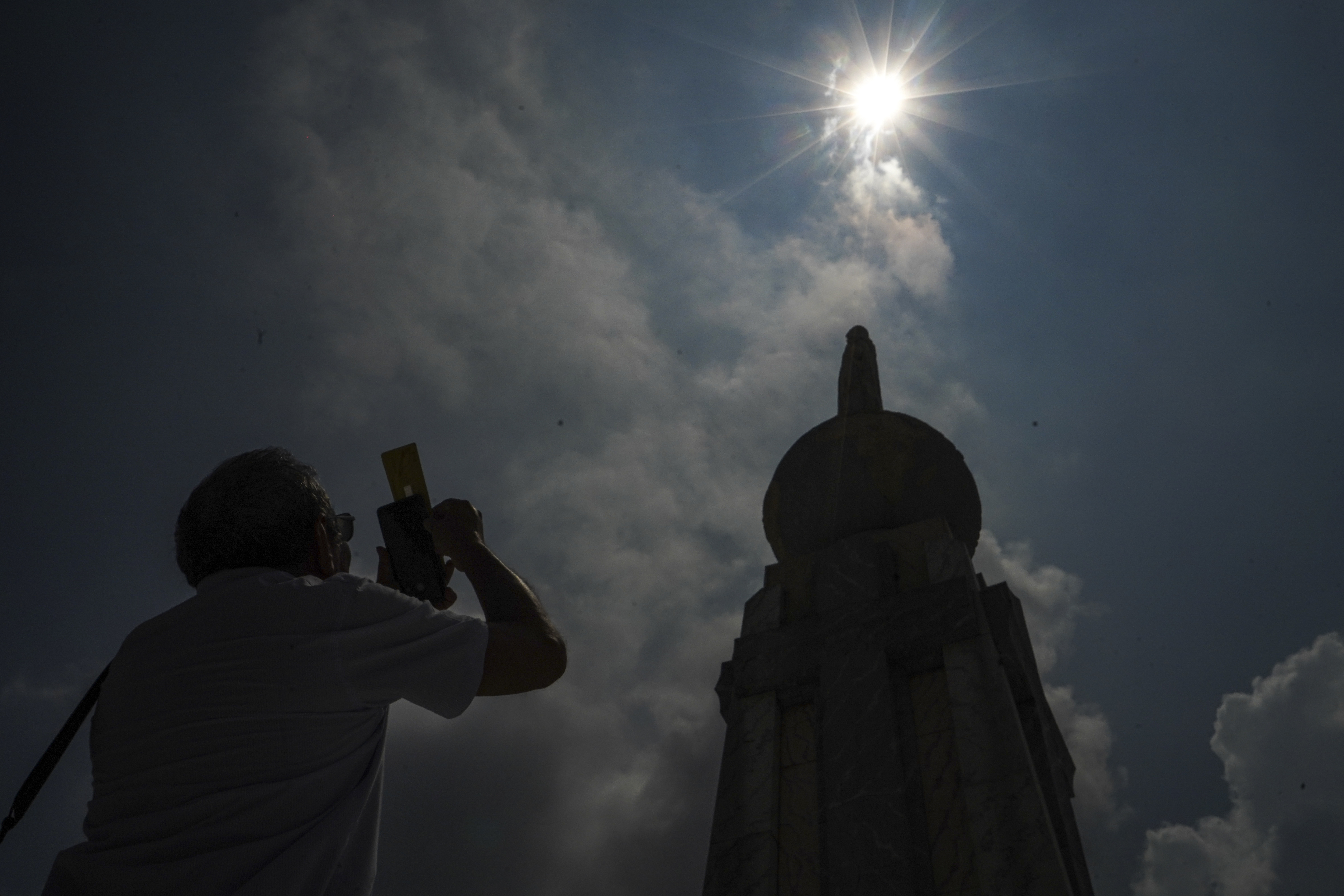We're just days away from the 2024 total solar eclipse, which will bring phenomenal views to large parts of North America along the path of totality.
The rare celestial event was called "the greatest solar eclipse across the U.S. in our lifetime" by NBC 5 Storm Team Meteorologist Kevin Jeanes, with Illinois being central to the upcoming eclipse.
While this year's eclipse may not feel significant to those who remember the August 2017 total solar eclipse, experts insist that this year's event is indeed quite rare.
Not only is the path of totality for the solar eclipse in the U.S., it will track through Carbondale in sourthern Illinois once again, marking a repeat from 2017. And for those in the Chicago area, the near-total eclipse will mark the closest the area will to totality in decades.
"The solar eclipses that are going to occur, for the most part, that are going to be visible in our area after this one will not be to the extent that this one is," Michelle Nichols, director of public observing at the Adler Planetarium, told NBC Chicago. "So we're going to see 94% of the sun covered and pretty much all of them in the next several decades in our area won't feature the sun covered at 94%. So if you want to see that, this is going to be your last chance for quite a while."
In terms of solar eclipses in the continental U.S., another total eclipse won’t take place for more than 20 years, with a 2044 eclipse occurring in North and South Dakota, among other locations.
A 2045 eclipse will be visible across a wide swath of the central and southeastern United States, but won’t impact Illinois and Indiana.
There are annular eclipses visible in Illinois in 2048 and 2093, but those eclipses don’t cover the same amount of the sun because of the moon’s distance from Earth, and thus aren’t able to be viewed with the naked eye.
Feeling out of the loop? We'll catch you up on the Chicago news you need to know. Sign up for the weekly Chicago Catch-Up newsletter here.
According to NASA, the next total solar eclipse that will be visible in Illinois won’t occur until Sept. 14, 2099. That eclipse will be visible in northeastern Illinois, including the city of Chicago, as well as parts of Wisconsin, including Madison, Milwaukee and Kenosha.
On May 1, 2079, a total solar eclipse will give residents of Philadelphia, New York and Boston an incredible spectacle, according to NASA.
"This might be the most-watched solar eclipse ever," Nichols said.
Adding to the excitement, a “devil comet” known for its occasional outbursts is currently visible in the night sky, and lucky stargazers may even be able to spot the celestial object during the solar eclipse, according to NBC News.
Comet 12P/Pons-Brooks was nicknamed the "devil comet" because an eruption last year left it with two distinct trails of gas and ice in the shape of devil horns.
The comet may be visible to the naked eye as it swings through the inner solar system and reaches its closest point to the sun in mid-April.



